第4章 WARS AND RUMORS OF WARS(2)
We crossed the Yadkin at a ford, and climbing the hills to the south of it we went down over stony traces, down and down, through rain and sun; stopping at rude cabins or taverns, until we came into the valley of another river.
This I know now was the Catawba.My memories of that ride are as misty as the spring weather in the mountains.
But presently the country began to open up into broad fields, some of these abandoned to pines.And at last, splashing through the stiff red clay that was up to the mare's fetlocks, we came to a place called Charlotte Town.What a day that was for me! And how I gaped at the houses there, finer than any I had ever dreamed of! That was my first sight of a town.And how I listened open-mouthed to the gentlemen at the tavern! One I recall had a fighting head with a lock awry, and a negro servant to wait on him, and was the principal spokesman.He, too, was talking of war.The Cherokees had risen on the western border.He was telling of the massacre of a settlement, in no mild language.
``Sirs,'' he cried, ``the British have stirred the redskins to this.Will you sit here while women and children are scalped, and those devils'' (he called them worse names)``Stuart and Cameron go unpunished?''
My father got up from the corner where he sat, and stood beside the man.
``I ken Alec Cameron,'' said he.
The man looked at him with amazement.
``Ay?'' said he, ``I shouldn't think you'd own it.Damn him,'' he cried, ``if we catch him we'll skin him alive.''
``I ken Cameron,'' my father repeated, ``and I'll gang with you to skin him alive.''
The man seized his hand and wrung it.
``But first I must be in Charlestown,'' said my father.
The next morning we sold our pelts.And though the mare was tired, we pushed southward, I behind the saddle.
I had much to think about, wondering what was to become of me while my father went to skin Cameron.I had not the least doubt that he would do it.The world is a story-book to a lad of nine, and the thought of Charlestown filled me with a delight unspeakable.Perchance he would leave me in Charlestown.
At nightfall we came into a settlement called the Waxhaws.And there being no tavern there, and the mare being very jaded and the roads heavy, we cast about for a place to sleep.The sunlight slanting over the pine forest glistened on the pools in the wet fields.And it so chanced that splashing across these, swinging a milk-pail over his head, shouting at the top of his voice, was a red-headed lad of my own age.My father hailed him, and he came running towards us, still shouting, and vaulted the rails.He stood before us, eying me with a most mischievous look in his blue eyes, and dabbling in the red mud with his toes.I remember I thought him a queer-looking boy.He was lanky, and he had a very long face under his tousled hair.
My father asked him where he could spend the night.
``Wal,'' said the boy, ``I reckon Uncle Crawford might take you in.And again he mightn't.''
He ran ahead, still swinging the pail.And we, following, came at length to a comfortable-looking farmhouse.
As we stopped at the doorway a stout, motherly woman filled it.She held her knitting in her hand.
``You Andy!'' she cried,'' have you fetched the milk?''
Andy tried to look repentant.
``I declare I'll tan you,'' said the lady.``Git out this instant.What rascality have you been in?''
``I fetched home visitors, Ma,'' said Andy.
``Visitors!'' cried the lady.``What 'll your Uncle Crawford say? And she looked at us smiling, but with no great hostility.
``Pardon me, Madam,'' said my father, ``if we seem to intrude.But my mare is tired, and we have nowhere to stay.''
Uncle Crawford did take us in.He was a man of substance in that country,--a north of Ireland man by birth, if I remember right.